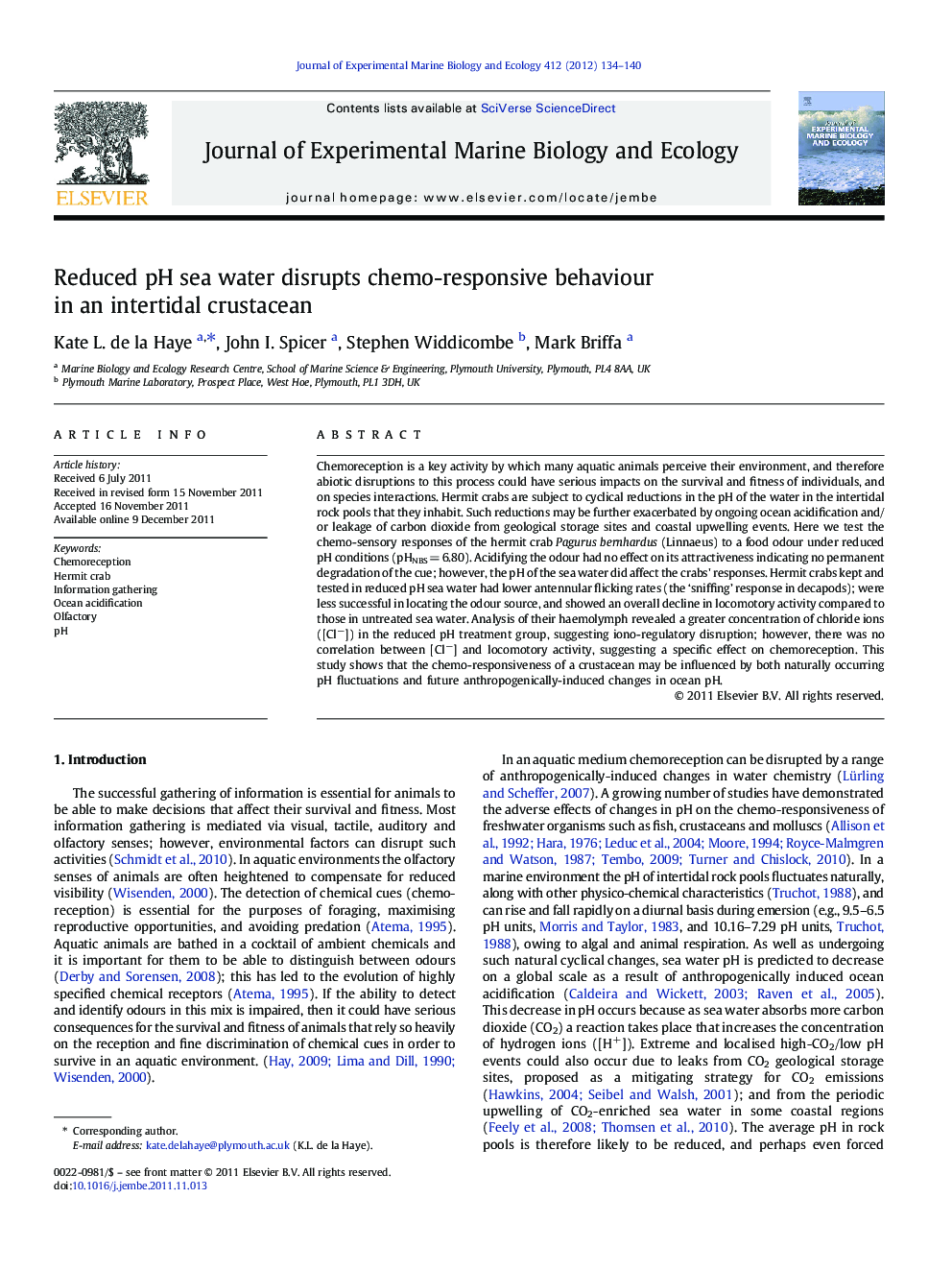| کد مقاله | کد نشریه | سال انتشار | مقاله انگلیسی | نسخه تمام متن |
|---|---|---|---|---|
| 4396062 | 1618452 | 2012 | 7 صفحه PDF | دانلود رایگان |

Chemoreception is a key activity by which many aquatic animals perceive their environment, and therefore abiotic disruptions to this process could have serious impacts on the survival and fitness of individuals, and on species interactions. Hermit crabs are subject to cyclical reductions in the pH of the water in the intertidal rock pools that they inhabit. Such reductions may be further exacerbated by ongoing ocean acidification and/or leakage of carbon dioxide from geological storage sites and coastal upwelling events. Here we test the chemo-sensory responses of the hermit crab Pagurus bernhardus (Linnaeus) to a food odour under reduced pH conditions (pHNBS = 6.80). Acidifying the odour had no effect on its attractiveness indicating no permanent degradation of the cue; however, the pH of the sea water did affect the crabs' responses. Hermit crabs kept and tested in reduced pH sea water had lower antennular flicking rates (the ‘sniffing’ response in decapods); were less successful in locating the odour source, and showed an overall decline in locomotory activity compared to those in untreated sea water. Analysis of their haemolymph revealed a greater concentration of chloride ions ([Cl−]) in the reduced pH treatment group, suggesting iono-regulatory disruption; however, there was no correlation between [Cl−] and locomotory activity, suggesting a specific effect on chemoreception. This study shows that the chemo-responsiveness of a crustacean may be influenced by both naturally occurring pH fluctuations and future anthropogenically-induced changes in ocean pH.
► We investigate responses of a crustacean to a chemical cue in reduced pH conditions.
► CO2-acidified sea water was found to adversely affect chemo-sensory behaviour.
► Antennular flicking and movement declined, and cue detection was impaired.
► There was no permanent degradation of the cue under reduced pH conditions.
► A specific effect upon chemoreception is indicated.
Journal: Journal of Experimental Marine Biology and Ecology - Volume 412, 31 January 2012, Pages 134–140